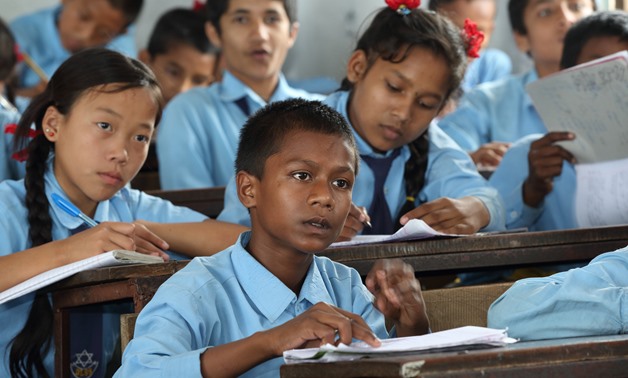
Students at Shree Dharmasthali Lower Secondary School, Pokhara, Nepal- CC via Flickr/ Department of Foreign Affairs
CAIRO – 28 September 2018. The transitional stage from preschool and early childhood years marks an important developmental period, because young children separate from their comfort zone and transfer from their small circles to big circles, such as school. It is the stage where they learn how to independently function and how to make new friends.
It is expected that some children will express distress or fear about being away from parents and primary caregivers for the first time. This can manifest in a school refusal disorder.
How can you recognize if your child is distressed about going to school? They may exhibit the following symptoms:
- Feeling sick or waking up with headaches, stomachaches or sore throats, but finding that those suddenly disappear when you allow them to stay home.
- Refusing to get out of bed and hiding under the covers.
- Threatening to self-harm.
- Exhibiting physical symptoms such as dizziness or light headedness, frequent urination, diarrhea, muscle tension, racing heart, shaking or trembling, shortness of breath or hyperventilation and vomiting
- Child frequently asks about his parent and calls them
Fortunately, there are some steps that you can take to help your child overcome ‘school refusal’:
- Consult a doctor if your child complains about physical illness.
- Talk with your child, try to know what are the reasons and fix them.
- Avoid lecturing as long debates won’t do any good.
- Avoid separation anxiety and give your child more attention.
- Be a detective for a while: Look for clues as to what is causing your child to avoid school, there's no point in putting your child on the defensive.
- Sleep deprivations increases symptoms of anxiety and depression; establish healthy sleeping habits and keep a regular sleep cycle.

Comments
Leave a Comment